Wednesday, June 16, 2021
10:15 am to 12:00 pm
Panel Moderator: Nesrin Ozalp, Professor and Chair of Mechanical and Civil Engineering Department, Purdue University Northwest, Editor-in-Chief of Thermopedia by Begell House
The history of women's contribution in science, technology, engineering, and mathematics dates back to several centuries B.C. with their discoveries in astronomy and influence in philosophy. By the 19th century, women's influence in engineering emerged with their admission to get academic training in mathematics and science although they were still not allowed to receive graduate level education in engineering. Admission of women to engineering programs started in the beginning of the 20th century. It wasn't until 1918, when Kate Gleason was unanimously elected to ASME as its first woman member. In 1986, Dr. Nancy Fitzroy became the 105th and first female president of the ASME. She graduated from the Kate Gleason College of Engineering at the Rochester Institute of Technology, which is the first engineering school in the US to be named for a woman. Since these pioneering women engineers, many female students decided to pursue engineering as their career and many inspiring women have made their contribution into industry and academia with their outstanding inventions, research, and leadership. However, according to the data by the Society of Women Engineers (SWE), female students' interest in majoring in engineering has increased, but it still lags behind male students' number of enrollment. Similarly, SWE data shows that only 13% of the engineers in workforce are women, and only 17% of tenure/tenure-track faculty in engineering are women. As for the pay scale, SWE data indicates that female engineers earn 90¢ for every $1 male engineers earn. The ASME Energy Sustainability 2021 Women in Engineering panel showcases outstanding women engineers that have made numerous contributions to engineering through their research and leadership. The panel will showcase highlights of their career and accomplishments along with vibrant discussions on exciting aspects of engineering, a wide spectrum of technical topics and opportunities in engineering, and ideas to enhance the number of female engineers and influential contributions of female engineers. Last but not the least, the panel will provide a forum to discuss the conference theme, "For a Sustainable Planet”, and women’s potential roles as creative engineers towards that goal."
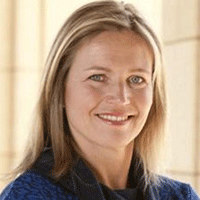
Dr. Margot Gerritsen, Professor of Energy Resources Engineering, Stanford University
Dr. Gerritsen received her MS degree at University of Delft, and her Ph.D. from Stanford University. She has been a faculty member at Stanford since 2001. From 2010 to 2018, she directed the Stanford Institute for Computational and Mathematical Engineering. Since 2015, she is the Senior Associate Dean for Educational Affairs in the School of Earth, Energy and Environmental Sciences, as well as the co-director of Women in Data Science (WiDS) and the host of the WiDS podcasts. Dr. Gerritsen’s research area of interest is on computer simulation and mathematical analysis of engineering and natural processes.
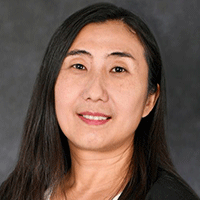
Dr. Ying Sun, Program Director of the Thermal Transport Processes program at NSF, Professor of Mechanical Engineering and Mechanics at Drexel University
Dr. Sun received her bachelor's degree at Tsinghua University in Beijing. She completed her Master’s and PhD at the University of Iowa. She joined Drexel's College of Engineering faculty in 2009. She has authored over 65 refereed publications, supervised six PhD dissertations, 12 Master’s theses, over 25 undergraduate researchers, and eight post-docs. Her research interests include multiphase flows and heat/mass transport, multiscale modeling of transport phenomena, wetting and interfacial phenomena, and scalable nanomanufacturing. Dr. Sun's lab is funded by the NSF, DOE, ARPA-E, AFOSR, EPRI, ACS PRF, Ben Franklin Technology Partners, and industry. She is a Fellow of the ASME.
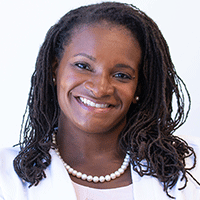
Erin Slayton PE, DBIA, ENV. SP, Principal Project Manager/Vice President, HDR
Ms. Slayton received her BSc from Stanford University and her MS from University of Washington. With nearly 20 years of experience in the planning, design and delivery of major transportation infrastructure programs, Erin Slayton leads delivery of program management in all transportation markets. She served as an HDR department manager for the $4.56 billion Washington State DOT SR 520 Floating Bridge Replacement and HOV Program from 2012 to 2014. Erin helped develop and manage the procurement and delivery of the $1.7 billion Arizona DOT South Mountain Freeway Project, before moving to Columbia, South Carolina, in 2018 to focus on the management of the South Carolina DOT's $1.6 billion Carolina Crossroads Project.
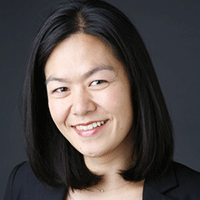
Dr. Evelyn Wang, Gail E. Kendall Professor and Department Head, Massachusetts Institute of Technology
Dr. Wang received her bachelor's degree in mechanical engineering from MIT in 2000, and MS and PhD degrees from Stanford University in 2001 and 2006, respectively. An internationally recognized leader in phase change heat transfer on nanostructure surfaces, Wang's research focuses on high-efficiency energy and water systems. Her work on solar cells that convert heat into focused beams of light was named as one of MIT Technology Review's 10 breakthrough technologies of 2017. Her work on the development of a device that can extract fresh water from the air in arid environments was selected by Scientific American and the World Economic Forum as one of 2017’s 10 promising emerging technologies.
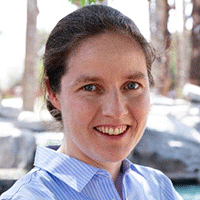
Dr. Sophia Haussener, Associate Professor, Ecole Polytechnique Federale de Lausanne (EPFL)
Dr. Haussener received her MSc and PhD (2010) in Mechanical Engineering from ETH Zurich. Her current research is focused on providing design guidelines for thermal, thermochemical, and photo-electrochemical energy conversion reactors through multi-physics modeling. She has published over 70 articles in peer-reviewed journals and conference proceedings. She has been awarded the ETH medal (2011), the Dimitris N. Chorafas Foundation award (2011), the ABB Forschungspreis (2012), the Prix Zonta (2015), the Global Change Award (2017), and the Raymond Viskanta Award (2019), and is a recipient of a Starting Grant of the Swiss National Science Foundation (2014). She is a deputy leader in the Swiss Competence Center for Energy Research (SCCER) on energy storage and acts as a Member of the Scientific Advisory Council of the Helmholtz Zentrum.